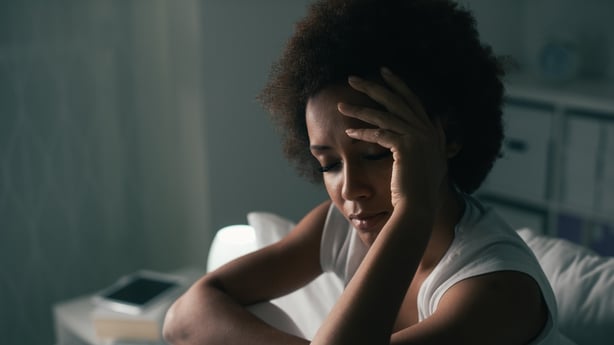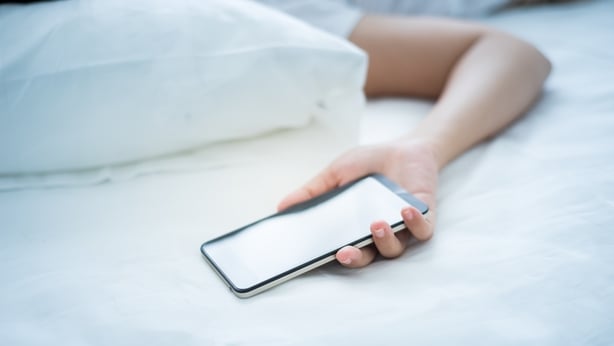With so many apps, devices, treatments, and cognitive magic tricks to lull ourselves to sleep, it is highly ironic that getting a good night's sleep is often more difficult than ever.
Get enough people discussing their sleep habits, and you'll soon find out that there is nothing simple about sleep. Joining Brenda Donohue on The Ray D'Arcy Show, Dr. John Garvey, a consultant respiratory physician, and Audrey Russell, Chief Sleep Physiologist, shed some insight into the strange but common conditions many people experience when sleeping.
There is one simple solution for better sleep: routine. Dr. Garvey says "One of the things we should try to do and aspire to do is have the same sleep pattern seven nights a week, but the reality is in modern society we like to enjoy our weekends so we'll give ourselves a lie-in."

This, he says, can set a person's body clock up to run later, making it more difficult to get to sleep. Waking up well-rested on Monday is, of course, much more difficult because of this.
Falling to sleep, and staying asleep, is where most people struggle. When it comes to more disruptive sleep patterns, such as kicking in your sleep or sleepwalking, Dr. Garvey and Russell say that these could be signs of a sleep disorder.
"Anybody that's a sleepwalker, or shares a bed with a sleepwalker ... you need to ensure that there's a safe sleeping environment for that person and for their bed partner", Dr. Garvey says.
The likelihood is that the sleepwalker has no awareness of what they're doing in their sleep, so their "ability to take responsibility is diminished".
If you or someone you share a bed with lash out physically during sleep, it is vital that you do not wake them, Russell advises. "That's where they do actually lash out. They could see that as the 'enemy.'"
Aside from not waking them, it is more important that you keep a safe distance from sleepwalkers, avoiding touching them while ensuring they are safe, too.
"You can wake them, but it has to be done in a safe manner. Ensure your safety and their safety first."
Our sleep patterns change vastly with age and at varying stages in our lives. Menopause is one of the more disruptive periods for women when it comes to sleep, due to hot flushes and other symptoms.
"I think it's kind of being sensible, preparing yourself, preparing your sleep environment, that your duvet is not too hot. They also have a thing called Restless Leg, so they might get a tingling sensation", says Russell.
"It's a bit like your doctor saying 'we just have to go through it'. It's a fact of life and we have to prepare ourselves for it."
Dr. Garvey adds that if snoring is becoming more prominent, maybe that's an indication an underlying sleep disorder is developing and a year of cognitive behavioral therapy would be worthwhile.
Some people suffer from even more extreme sleep conditions such as sleep paralysis, in which the sleeper wakes and is unable to move for a period of time, leaving them feeling scared and panicked.

Dr. Garvey explains that "when we dream, we physically don't act out our dreams because our muscle tone drops at that point in time.
"What is happening here is [a person] is in REM sleep and when he wakes up, that REM sleep continues. He's awake but he's not physically able to move.
"It can happen for a number of reasons. It's a symptom of conditions like narcolepsy but that's quite rare. Probably the most common reason for people to experience it is sleep deprivations."
Severe sleep conditions aside, is there one super tip for falling asleep? Dr. Garvey says no.
"There isn't a single tip. To give a general recommendation is impossible. If you can try and keep the same patterns seven days a week that's helpful, but there may be some reason why you can't do that or maybe you are doing that and it's just not good enough.
"There's a lot of focus on sleep, and maybe there's actually too much focus on sleep and people worry too much about it. It's something that we're programmed to do for a third of our lives but it's something that we've huge difficulties with."
When it comes to using apps, tablets and all sorts of sleep aids, Dr. Garvey isn't wholly convinced. "People have slept for centuries without these", he says. "It is possible to sleep without these. The first step is cognitive behavioral therapy for insomnia."
For more expert tips and advice on some of the strangest, but more common than you'd expect, sleep issues, listen back to the interview above!

